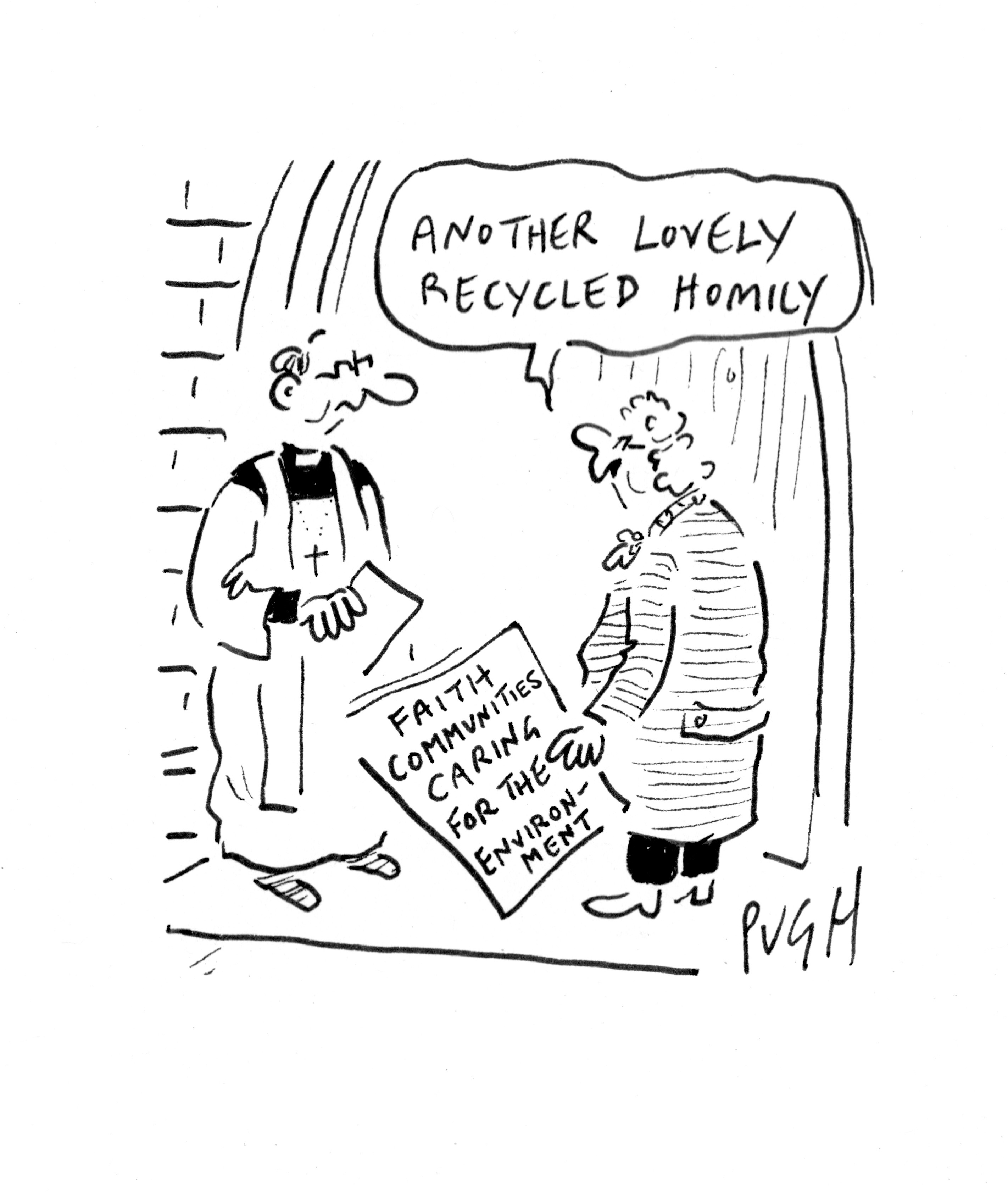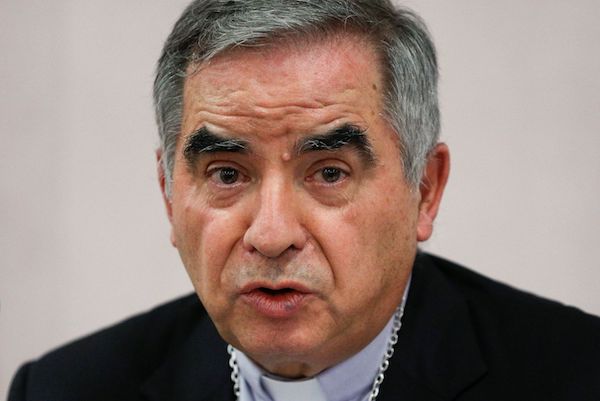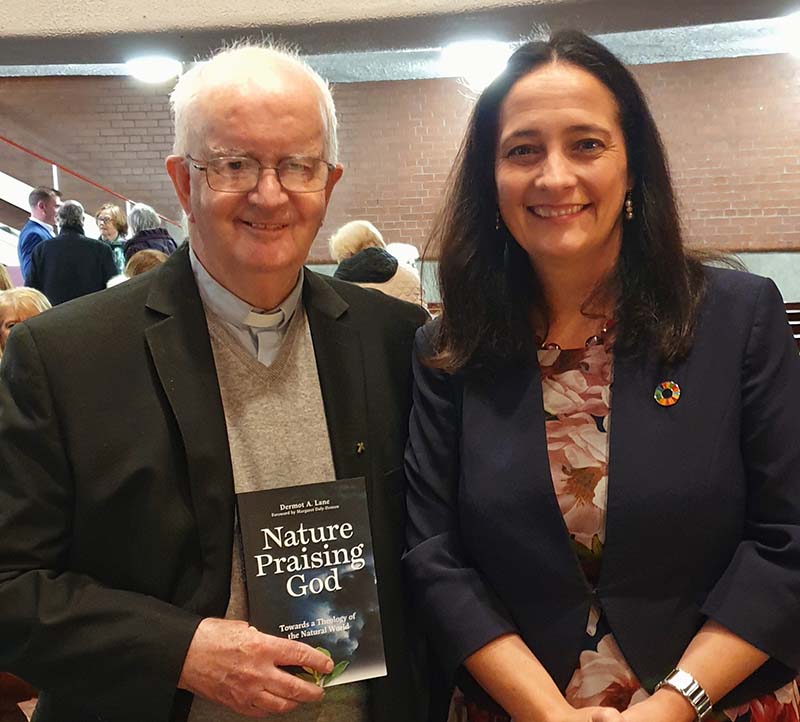Faith communities can be powerful allies when it comes to caring for the environment, a leading minister has said.
Catherine Martin, the Irish Minister for Tourism, Culture, Arts, Gaeltacht, Sport and Media, said at a book launch that the value of faith communities in promoting a more sustainable future must not be underestimated.
“One of our core values as Christians is to be stewards of God’s creation, to care for the earth and to care for each other,” she said.
Launching Fr Dermot Lane’s new book, Nature Praising God, the deputy leader of the Green Party, Ms Martin told the gathering in the Church of the Ascension, Balally, Dublin: “Here tonight I am reminded of just how powerful an ally the environmental movement has in faith communities.”
She underlined that Christianity has always been concerned with the environment and that “we cannot underestimate the value of faith communities in promoting a more ecologically and socially just and sustainable future.”
In the book, which was written during the Covid lockdown, Fr Lane investigates the relationship between faith and nature.

“This book serves to inspire us to love nature, and to cherish our environment,” the minister said. The priest-theologian, she added, inspires the reader to allow their faith guide their love of nature and respect for nature.
“The urgent global and catastrophic challenge that climate change presents is something we simply cannot turn away from. We can never have it said that we stood idly by, that we did anything less than our level best to secure our children’s safety and future.”
By restoring our biodiversity, by protecting and conserving our natural resources, and by pursuing ecological principles, we are taking climate action, she explained.
Minister Martin said that similar to this connection between climate and nature is the inherent link between protecting our environment and our quest for social justice and to tackle inequality.
“We cannot hope to capture people’s hearts with our environmental and climate beliefs if they are suffering from hunger or from homelessness.”
“We cannot hope to convince people of the need for climate justice if we deny them a place in our society – and by place, I mean a home; a strong education; stability; security; a stake in our new greener society with a good quality of life for everyone.”
“We cannot allow ourselves to pretend that we here in Ireland can continue to pursue economic growth at all costs, at the expense of those most vulnerable in the world.”
Actions always speak louder than words, the deputy leader of the Green Party said. “That is why it is wonderful to see more and more religious groups actively emphasising ecological protection and acting on these beliefs in very practical ways. Religion is centre to hundreds of millions of people’s lives in one way or another and communities of faith can make a monumental difference in shaping society.”
She concluded her launch address by paying tribute to Fr Dermot Lane for his leadership on this issue.
Fr Lane, who retired as parish priest of Balally parish in 2017 and is a past president of Mater Dei Institute of Education in Dublin, was unable to attend the launch in person due to illness.
His address was delivered by Balally parish priest, Fr Jim Caffrey. In it, Fr Lane said justice is a huge issue in the current debate about climate, embracing global justice, climate justice, social justice, economic justice, and intergenerational justice. “Without attention to these layers of justice it will be difficult to save the planet,” he warned.
He explained that the book owes its origins to the Covid crisis, when churches were closed during lockdown, streets were empty, and many people turned to nature, to commune with the Creator.
“We learned a lot during the lockdown: we began to hear the birds like never before, we discovered that the air was all of a sudden fresh and free from transport emissions. And most of all, we learned how much we had taken nature for granted.”
With the industrial revolution, Nature had become an object to be exploited “as if it contained an infinite supply of resources”. However, warned Fr Lane, “In its own way, nature has been rebelling against this endless exploitation.”
He said that what he was trying to do in the book was to “rescue nature from the worst effects of unbridled, market-driven capitalism.”
Pope Francis, he stressed, is very clear that humanity exists not above nature, not below nature, but as an integral part of nature.
“To move out of the current climate impasse, Pope Francis offers a critique of what he calls the existence of excessive anthropocentrism.”
“The task for governments is to prevent climate action from being just one more crisis. By taking action now, governments will be saving money, not losing it, in terms of planning now for the future. There is no longer any debate about the fact that climate change is the most urgent issue facing humanity at this time,” according to Fr Lane.
“Faith communities recognise better than most that the environmental crisis is at root a deeply spiritual crisis and a deeply ethical challenge for humanity,” he said.



 Loading ...
Loading ...